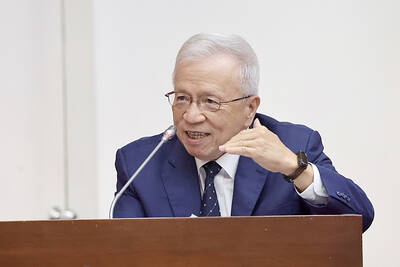Major US companies are getting caught up in a US President Donald Trump administration effort to identify companies with ties to the Chinese military that would restrict exports to them.
TTI Electronics Asia PTE Hong Kong Ltd, a subsidiary of a US-based TTI Inc, a Berkshire Hathaway Inc company, is on a draft list of such companies, as is Arrow Asia Pac Ltd, a subsidiary of Arrow Electronics Inc.
Both companies, which distribute electronics, deny links to the Chinese military and say they are taking steps to be removed from the list, if and when it is published.
A spokesman for the US Department of Commerce declined to comment.
The list is part of a draft rule that identifies Chinese and Russian companies the US considers “military end users,” a designation that means US suppliers must seek licenses to sell a broad swath of commercially available items to them.
TTI Electronics Asia is an authorized distributor of electronic components, none of which is a military or defense item, the company said in a statement on Wednesday.
Arrow made a similar statement on Tuesday.
“Arrow carefully conducted an analysis of the draft rule and has concluded that Arrow Asia Pac Ltd is not a military end-user, nor does it engage in any military end-use as defined in the draft-rule,” it said.
Arrow distributes for Taiwan Semiconductor Manufacturing Co (台積電), Advanced Micro Devices Inc, Rand Technology Inc, Intel Corp and Texas Instruments Inc, among many others, Source ESB said.
Reports on Nov. 22 said that the department had drafted a list of 89 Chinese and 28 Russian companies that it determined were “military end users.”
The pending list comes after the department in April expanded the definition of “military end user.”
The department rule includes not only armed service and national police, but any person or entity that supports or contributes to the maintenance or production of military items — even if their business is primarily non-military.
The licenses are more likely to be denied than granted, the department rule says.
The 117-company list is “not exhaustive” and is considered an “initial tranche,” the draft rule said.

JITTERS: Nexperia has a 20 percent market share for chips powering simpler features such as window controls, and changing supply chains could take years European carmakers are looking into ways to scratch components made with parts from China, spooked by deepening geopolitical spats playing out through chipmaker Nexperia BV and Beijing’s export controls on rare earths. To protect operations from trade ructions, several automakers are pushing major suppliers to find permanent alternatives to Chinese semiconductors, people familiar with the matter said. The industry is considering broader changes to its supply chain to adapt to shifting geopolitics, Europe’s main suppliers lobby CLEPA head Matthias Zink said. “We had some indications already — questions like: ‘How can you supply me without this dependency on China?’” Zink, who also

At least US$50 million for the freedom of an Emirati sheikh: That is the king’s ransom paid two weeks ago to militants linked to al-Qaeda who are pushing to topple the Malian government and impose Islamic law. Alongside a crippling fuel blockade, the Group for the Support of Islam and Muslims (JNIM) has made kidnapping wealthy foreigners for a ransom a pillar of its strategy of “economic jihad.” Its goal: Oust the junta, which has struggled to contain Mali’s decade-long insurgency since taking power following back-to-back coups in 2020 and 2021, by scaring away investors and paralyzing the west African country’s economy.

BUST FEARS: While a KMT legislator asked if an AI bubble could affect Taiwan, the DGBAS minister said the sector appears on track to continue growing The local property market has cooled down moderately following a series of credit control measures designed to contain speculation, the central bank said yesterday, while remaining tight-lipped about potential rule relaxations. Lawmakers in a meeting of the legislature’s Finance Committee voiced concerns to central bank officials that the credit control measures have adversely affected the government’s tax income and small and medium-sized property developers, with limited positive effects. Housing prices have been climbing since 2016, even when the central bank imposed its first set of control measures in 2020, Chinese Nationalist Party (KMT) Legislator Lo Ting-wei (羅廷瑋) said. “Since the second half of

Taiwan Semiconductor Manufacturing Co (TSMC, 台積電) received about NT$147 billion (US$4.71 billion) in subsidies from the US, Japanese, German and Chinese governments over the past two years for its global expansion. Financial data compiled by the world’s largest contract chipmaker showed the company secured NT$4.77 billion in subsidies from the governments in the third quarter, bringing the total for the first three quarters of the year to about NT$71.9 billion. Along with the NT$75.16 billion in financial aid TSMC received last year, the chipmaker obtained NT$147 billion in subsidies in almost two years, the data showed. The subsidies received by its subsidiaries —